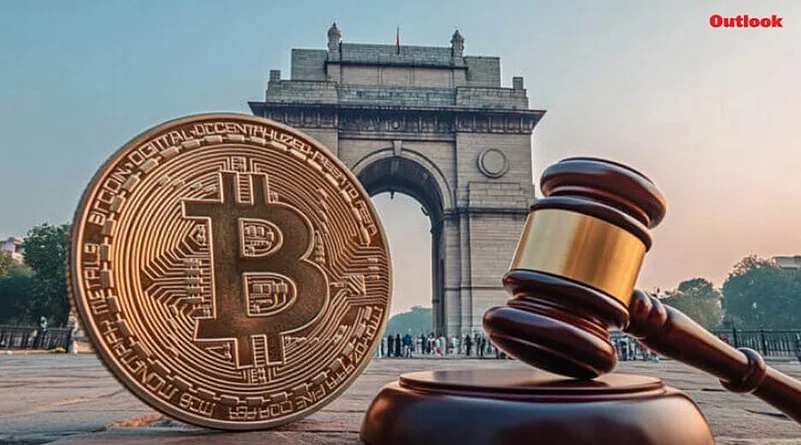As the international economy of digital money is growing at a frantic pace, India is suspended in mid-air about how to regulate or not regulate cryptocurrency. India boasts more than 25 million users-one of the globe's largest crypto economies-struggling with its non-digitized economy and ruled by an unbalanced and outdated system of regulation.
One of the most powerful tools of democracy has been disregarded in such a case: public consultation.
With the country slowly moving towards enactments of the ultimate laws that will regulate virtual digital assets (VDAs), one of the things in the back of everyone's mind is—is India, all those women and men in business, techpreneurs, lawyers, investors, having their say in the hearings that will make or break their money life?
Since 2018, the Indian response to cryptocurrencies has been judicially driven and ad-hoc policy announcement-led, rather than serial public consultations-led as a core principle of policymaking. Reserve Bank of India's (RBI) notorious 2018 circular had left the role of the banks in facilitating crypto transactions in limbo without opting for public consultations, which was put on hold by the Supreme Court in the year 2020. The Court order gave importance to the policymaking consultative process being significant.
When the 2022 Union Budget imposed a 30% tax on profits from digital assets and demanded a 1% Tax Deducted at Source (TDS) on every transaction, the industry was left reeling. Whereas the steps were the de facto green light for surmised adoption of digital assets, it was not followed through after stakeholder consultation and resulted in the following:
- Confusion among retail investors
- A sharp fall in domestic crypto volumes
- Mass migration of Web3 companies and experts to crypto-friendly locations
Indian exchange volumes declined more than 70% after taxation was implemented, according to a 2023 Chainalysis report. Besides this, another 500+ Indian Web3 developers migrated to freer locations like Dubai, Singapore, and the UK as well.
Why Public Consultation is Needed?
Public hearing under a democracy like India is the bedrock of open and transparent government. Properly conducted, it leads to:
Technically sound as well as statistically sound law-making
Greater public confidence in regulation-formulation process
Least possibility of legal challenge and non-compliance
Protection against "regulatory capture," i.e., corporate hegemony which presides supreme while deciding what to place in a bill of legislation
In new and newly arriving industries such as crypto and blockchain, where rule of law is perpetually catching up, civic engagement is not only a civic duty, it's necessary.
Global Best Practices: Learning from Others
Public consultation already underway among some policy-making by some jurisdictions on crypto:
United Kingdom
The Financial Conduct Authority (FCA) launches live public opinion in consultation documents. 2023 crypto and DeFi ads consultations listened to the opinions of thousands of stakeholders, having a meaningful impact on the final regulatory position.
European Union
Bank and public, fintech firms, consumer groups, and public consultations preceded European Commission approval of the Markets in Crypto-Assets (MiCA) regime. The law is a 27-member state agreement.
Singapore
MAS directs crypto policy through impartial public consultation in white papers, industry debate, and public opinion surveys. Innovation takes place in safe regulatory sandbox space, experimentation and responsibility in balance.
Glimmers of Change in India
Good news is that India is slowly moving towards more inclusive regulation:
1. Parliamentary Hearings (2021)
The Standing Committee on Finance, chaired by Jayant Sinha, held discussions with crypto exchange founders, legal scholars, and academics—marking the first formal interface between lawmakers and the crypto industry.
2. SEBI라이브 바카라 Tokenization Dialogue (2023)
The Securities and Exchange Board of India (SEBI) launched a consultative process to explore real-world asset tokenization with fintech players and legal experts.
3. FIU Engagement Post-PMLA Notification
Positioning crypto exchanges under the Prevention of Money Laundering Act (PMLA), the Financial Intelligence Unit devised direct consultation with crypto platforms so that compliance is not default but easy.
What an Ideal Consultation Process Should Be Like
To make good and participatory crypto law, India needs to establish a formal multi-stage process:
1. Green Paper Launch
Start with an open paper enumerating government agendas—taxation, AML compliance, consumer protection, and innovation—free requests for comments.
2. Townhalls Both Virtually and Physically
Conduct townhalls in Indian metro cities both virtually and physically. Town and semi-urban youth, developers, VDA users, and startup entrepreneurship can be included.
3. Task Forces Constituted by Expert Panels
Set up panels with:
- RBI, SEBI, MEITY, and Income Tax Departments
- Crypto and fintech associations (IAMAI, BACC)
- Legal experts and consumer groups
4. Draft Bill Public Consultation Period
Release the draft bill on a government website for 60–90 days so that criticism and comment, as existed in public consultation of India's Data Protection Bill, can be given by the public.
Problems in Participatory Regulation
Participatory government has so much to offer but there is some problem in its application:
MEITY (experimental), SEBI (balanced), and RBI (conservative) regulatory reactions vary
Open campaigning is not easy for cryptos as they have been linked to financial illegality and fraudulence
Cryptos are technology-oriented and technologically necessitate decoupling from rightful comment on significant numbers of them
Crypto illiteracy among the masses can pre-judge consultation.
But they don't need to. With effective media literacy, academic activism, and NGO activism, healthy public action can be assured.
The Industry Speaks
Actions like Crypto Legal and Indiatech.org have suggested policy in the shape of appealing to:
Differential token type (utility, security, stablecoins)
Taxation rationale to eschew capital flight
Progressive regimes of innovation sandboxes and licensing
The proposals are all regulatory clarity and co-operation between public-private players in the policy-making process.
Last Word: For the People
India's regulation journey towards crypto has to be in line with democratic principles. Cryptocurrencies aren't technology innovation—cryptocurrencies are a new economic and social paradigm. to subject this revolution to an exclusionary, elitist model would be self-destructive and ironic.
India, instead of posing the question, "*What do we regulate*?", should pose the question, "*Whose future are we building with this regulation*?".














